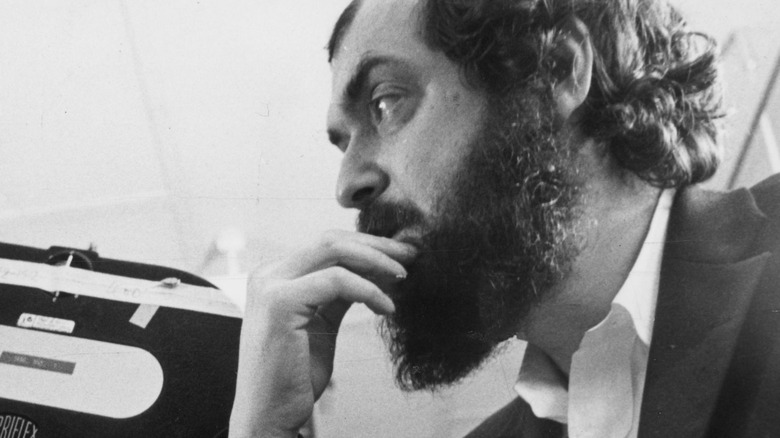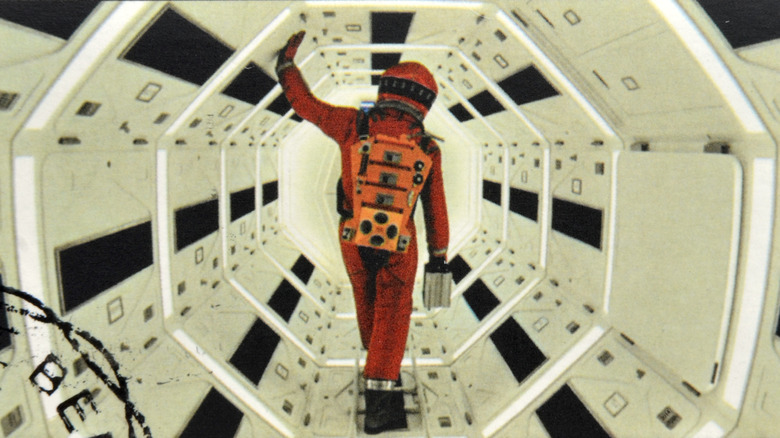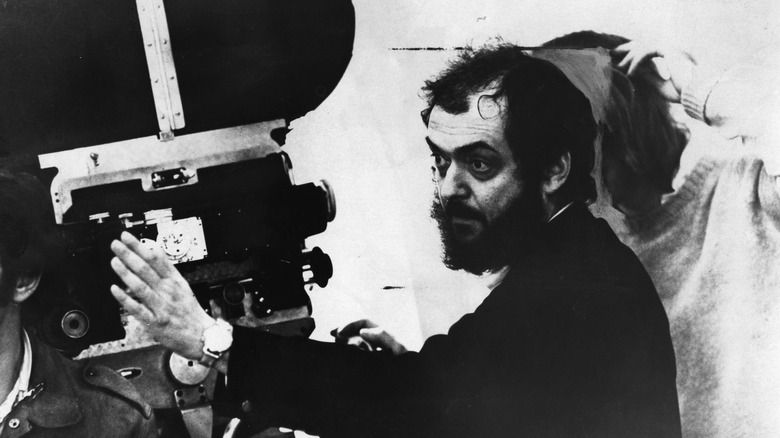The Truth Behind Stanley Kubrick's Only Oscar
Stanley Kubrick is generally listed among the best directors of all time; many even call him the best. Per the Independent, Kubrick directed a total of 13 full-length films over the course of his nearly half-century-long career. The subjects of these films range greatly, from Kubrick's black comedy satirizing the nuclear arms race to his horror adaptation of a Stephen King novel about one man's descent into madness.
For his films — five of them in particular — Stanley Kubrick earned a total of 13 Oscar nominations, as IMDb reports. But, for all his critical acclaim, you may be surprised to learn that Kubrick only won a single Oscar.
Kubrick was nominated for Best Director for four films: "Dr. Strangelove" in 1965, "2001: A Space Odyssey" in 1969, "A Clockwork Orange" in 1972, and "Barry Lyndon" in 1976. Three of these films — all but "2001: A Space Odyssey" — also earned Kubrick nominations in the Best Picture category. But Kubrick didn't win any of these. He didn't win for Best Screenplay either, despite receiving a total of five nominations in that category.
Instead, Kubrick's sole Academy Award comes from an often-overlooked Oscars category: Best Visual Effects. And, if you're familiar with Kubrick's movies, you can probably guess which one earned him that Oscar.
Kubrick won the 1969 Oscar in Best Visual Effects for 2001: A Space Odyssey
Visually speaking, "2001: A Space Odyssey" is likely Kubrick's most ambitious film. The movie documents a futuristic space mission to Jupiter on a craft controlled by the iconic artificial intelligence, HAL 9000. While creating a realistic space-like visual environment was challenging enough in 1968, the movie's visuals get even more wild when the protagonist travels through a wormhole-like structure near the film's end.
Keep in mind that CGI wasn't first used in movies until 1973, per Insider, so all of 2001's effects had to be made physically. Screenrant reports, for example, that Kubrick spent $750,000 of 2001's budget constructing a giant rotating wheel to house sets, simulating the inside of a rotating spaceship. Meanwhile, 2001's team also built large 3D models of the movies' spaceships for any shots of the outside of the spacecraft.
Together, 2001's special effects won Kubrick the Academy Award in 1969. But Kubrick's win was a bit controversial.
Generally, the director of a movie is not the person nominated for the Oscar in visual effects. For example, "Tenet" won the most recent Oscar in the visual effects category, per IMDb, but the award went to a team of four visual effects supervisors rather than the director, Christopher Nolan. So did Kubrick really earn his Oscar, or were there others more directly involved in the special effects who got snubbed by the Academy?
Some say that Kubrick wasn't truly responsible for 2001: A Space Odyssey's visual effects
There's no doubt that Stanley Kubrick played a more hands-on role in 2001's visual effects than most modern directors. But is he really the person most responsible for them?
2001Archive states that Kubrick "supervised" a team of a handful of special-effects experts. Perhaps the most prolific member of this team was Douglass Trumbull, who would go on to do special effects work for "Blade Runner" and "Close Encounters of the Third Kind" and earn multiple Oscar nominations of his own, per The Hollywood Reporter.
Trumbull was also the person who created the wormhole-like visual experience at the end of 2001. That trippy light-show effect was produced with a super-long-exposure slit-scan machine; the machine had to record footage for "24 hours a day for months to produce that sequence," Trumbull told The Hollywood Reporter. Kubrick oversaw the process, but Trumbull is the one who carried it out.
So, in a separate interview with The Hollywood Reporter in 2014, Trumbull professed that Kubrick didn't really deserve his 1969 Oscar. Trumbull recalls that Kubrick typically came up with the visual effects he wanted to put into 2001, whereas his team of VFX experts were the ones responsible for making those effects a reality. "Kubrick did not create the visual effects. He directed them," Trumbull said. "He was an incredibly gifted director and should have gotten [an award] for directing and writing and what his real strength was — not special effects."


